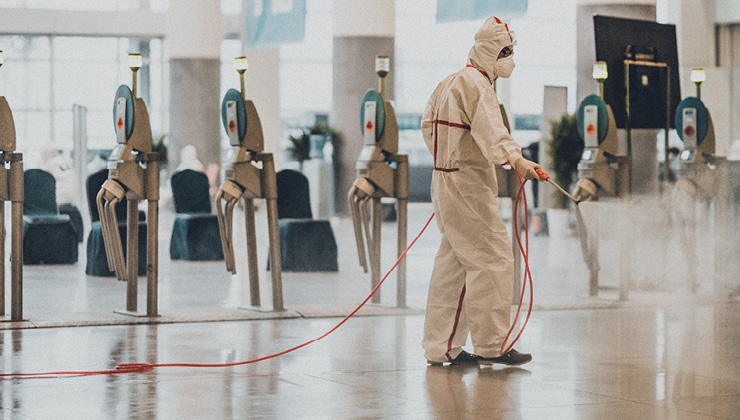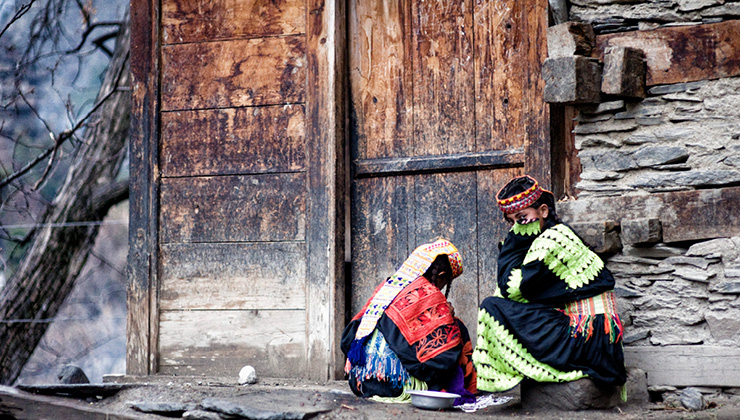Whilst there have been some advances towards a human rights-based approach in post-conflict Ireland, there remains significant gaps in the implementation of the promises of the Good Friday Agreement, gaps made all the more prominent by the COVID-19 pandemic. Brian Gormally argues here why there is a need to pivot towards a human rights-based approach as a framework to fully implement the peace process and construct a fairer future, post-pandemic.
The tragedies of the past have left a deep and profoundly regrettable legacy of suffering. We must never forget those who have died or been injured, and their families. But we can best honour them through a fresh start, in which we firmly dedicate ourselves to the achievement of reconciliation, tolerance, and mutual trust, and to the protection and vindication of the human rights of all
The Belfast Good Friday Agreement – Declaration of Support
It is 22 years since the Belfast Good Friday Agreement was adopted by the people of Ireland and their two governments. There have been advances on the road towards a human rights-based society as envisaged in the “fresh start” described above. Most notably, the European Convention on Human Rights (ECHR) was incorporated in domestic law (for the whole of the UK) in the Human Rights Act 1998. This Act underpins in many ways the deep (if incomplete) reform of policing and the somewhat shallower reform of criminal justice. We have also had the benefit of the development and application of a public authority duty to equality screen all policies and anti-discrimination laws and practices which have largely subdued overt sectarian discrimination in employment and the provision of goods and services.
The importance of a rights-based society as an out-working of the peace process is that Northern Ireland contains two main communities with different identities and national aspirations and allegiances. The ‘shared space’ of Northern Ireland has to be just and fair so that all, or most of the people, can give its political and legal institutions at least their contingent support.
However, there are gaps in the implementation of promises and a certain “roll-back” of key provisions of the Good Friday Agreement and other political agreements that followed. Most notable is the failure to legislate for a Bill of Rights for Northern Ireland that would contain rights additional to the ECHR relevant to the “particular circumstances” of the region.
Just what the “particular circumstances” are and what rights they imply, has been a matter of contestation. However, in 2008, the NI Human Rights Commission finally presented its “advice” on a Bill of Rights to the British Government as mandated by the Agreement. Part of the reason for the dismissal of this advice by the then Labour Government and Unionist politicians was, allegedly, the fact that it recommended the inclusion of substantial social and economic rights.
The debate languished for more than a decade. Then came the COVID-19 pandemic. It has exposed the gross inequalities and the distorted set of values that so far have been ‘normal’ in our post-conflict society. Specifically, it has also exposed the impact of the failure to implement the rights framework envisaged in the peace agreements, including the Bill of Rights and an anti-poverty strategy. The unequal impact of the virus will be further felt in economic, social and environmental rights (health, work, adequate standard of living, food safety, energy) terms by those who bear the brunt of its economic impact, concurrently with the out-workings of the United Kingdom leaving the European Union (Brexit).
In these circumstances, we need a Bill of Rights for Northern Ireland, based on our particular circumstances and including economic and social rights, as the basis of our new society. If we are to achieve this, we need to be convinced, and to convince others, that human rights are the best framework in which to approach both campaigning for and construction of a new, fair future.
We would argue that, while a rights-based society is a goal – and perhaps a far-off one – human rights standards can also be used as a guide to action, providing a direction of travel, certainly, but also a methodology in the process of building a new society. In that sense, human rights standards are a guide both to the kind of society we need and also to the elements that are necessary to achieve it.
Human rights are not a replacement for politics and programmatic action across a multiplicity of areas, but they are an indispensable benchmark. No political programme that contravenes or ignores human rights standards will, in the end, achieve the willing and informed allegiance of humanity. The actual treaties, laws, statements and codifications produced over the years at an international level represent not necessarily the highest imaginable aspirations for humanity but the highest aspirations that are practically and concretely achievable at this stage of history. As such, they are the most appropriate goal and normative framework for an imperfect world.
The case for social and economic rights
As noted above, the pandemic has impacted specifically on social and economic rights in the North of Ireland. Obviously, the disease itself and the necessary responses to it have created unemployment and economic hardship and also deepened the pre-existing crisis in health care. However, the point is that the pandemic has exposed the pre-existing frailty of the mechanisms that should have protected these rights better. In effect, the disease has demonstrated existing violations of social and economic rights. As a response, both in the context of the Bill of Rights and more generally, we should seek to re-open the debate on social, economic, cultural and environmental rights.
If the social and economic rights in the Bill of Rights Advice had been enacted, there might not have been such glaring holes in our health and social care systems, public authorities would have been clearer in their duty to put people’s welfare first and the death toll could have been lower. Those politicians who opposed social and economic rights in the past, and will do so again in the future, should be held to account. In the first place, this means politically, through the electoral process. However, when it comes to investigating what went wrong and how so many people died, we can also use human rights standards.
The Committee on the Administration of Justice (CAJ) has called for an inquiry into the COVID-19 deaths compliant with the investigative obligation arising out of Article 2 (Right to Life) of the ECHR. It requires that an investigation into potentially unlawful death be effective, independent, prompt, transparent and involving the next of kin of the deceased. Detailed jurisprudence lays down the requirements for an investigation which gets to the truth as well as identifying those responsible.
As well as advocating for the protection of social and economic rights in legislation, we should examine the advantages of using international human rights standards in social agitation and campaigning. In a recent successful campaign on wages and staffing levels by health workers in the North, for example, it was their solidarity and the support of the big majority of the people that carried the day. It could hardly have hurt, however, and may have added to the impact of the campaign also to argue that poor staffing and pay levels amounted to a violation of the right of the general population to the highest attainable standard of physical and mental health.
There are a number of advantages in using international human rights standards in social campaigning. We can sum these up as being about obligation, clarity of aim and rationality. The fact that human rights standards are international obligations freely entered into by the state should give them moral and political force. Simply put, the fulfilment – by progressive realisation – of the rights are obligatory; it is not a matter of ideology or unfettered political discretion.
The fact that there are rights to health and to education does not directly help in deciding on the allocation of scarce budget resources to one department or the other. It does help, however, in demonstrating the direction of travel that should be taken in both areas. It provides a yardstick: does the decision to be taken contribute to the progressive realisation of the right in question? Any regression would be a violation and could only be justified in either emergency or to fulfil another conflicting or competing right. So a human rights standard gives you clarity of aim.
Human rights standards are also rational, depending on evidence and dispassionate analysis rather than ideology or populism. They are the product not just of international agreement between states but also development and commentary from internationally constituted monitoring bodies and committees of experts. In an age where many politicians claim to be acting ‘based on the science’, yet in practice are motivated by populist ideology, the rationality of human rights-based discourse is particularly important.
As part of a peace process, economic, social, cultural and environmental rights have the capability to transcend political divisions and also to ensure a “peace dividend” to the poorest, most disadvantaged and hence most alienated in society. The active participation and support of the most marginalised people is essential if we are not to run the risk of a return to violence. This means explaining and campaigning for human rights amongst deprived communities as well as in political society.
In response to the pandemic we need to say “Never Again” and push forward towards the goal of a rights-based society. In that process, a Bill of Rights which contains social and economic rights will be key. Even after all this time since the Good Friday Agreement, never has the peace process needed human rights more.
With thanks to Lina Malagon, Fionnuala Ni Aolain and Rory O’Connell for their contribution to this article.
The views, thoughts and opinions expressed in this blog post are those of the author(s) only, and do not necessarily reflect LSE’s or those of the LSE Centre for Women, Peace and Security.
The UKRI GCRF Gender, Justice and Security Hub is working to advance sustainable peace by developing an evidence-base around gender justice and inclusive security in conflict-affected societies
Image credit: John Tecuceanu





